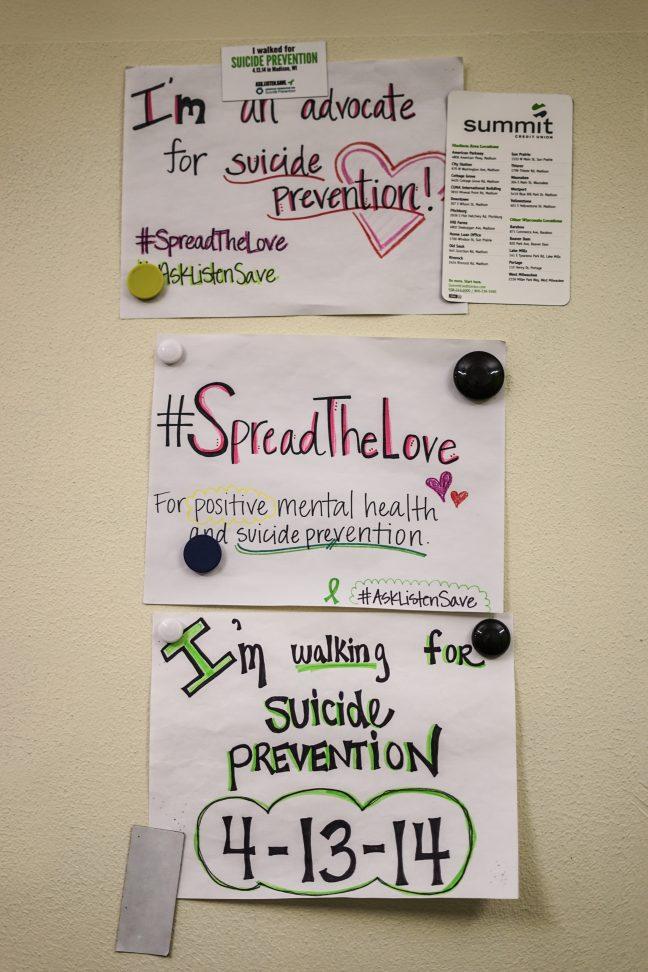Mental illness, often ignored and stigmatized, leaves those who suffer from it alone. Although many feel discouraged to seek treatment, it’s vital to the support and survival of our peers. But in states like Wisconsin, the shortage of psychiatrists has a huge impact on whether or not those who are seeking help will actually find it.
The Wisconsin Policy Forum reported more than three-quarters of Wisconsin’s counties are suffering from psychiatry shortages. This leaves concerned parents and struggling students nearly hopeless, forcing them into emergency rooms, out of campus or, for some, into jail.
Justin Schoen, president of the Wisconsin Psychiatric Association, cringed when looking at the demand for mental health services on the map of Wisconsin. Schoen estimated that overall the United States would need 40,000 more psychiatrists to meet mental health patient needs.
The National Alliance on Mental Illness found over one-third of students suffering from mental health conditions end up dropping out of school. Though we cannot extend this trend to be true in Wisconsin, it should be a cause for concern. Wisconsin students are not immune to the pressures of college life, nor to chemical imbalances that cause mental illness.
Although there are few private psychiatric practices operating in the area, students on campus have little access to efficient and free transportation, adding to their out-of-pocket costs. Students struggle with mental health leaves University Health Service’s psychiatric services in high demand. But the intense complexities of campus life and the lengthy and tedious process to obtain care discourages students from seeking help. Seeking psychiatric support at UHS can often lead to outside additional costs if extra help is needed.
The cost of seeking services in and outside of UHS disproportionately affects minority populations at UW, who have been found to suffer from mental health problems the most. In the University of Wisconsin’s “The Healthy Minds Study,” marginalized students described feeling cast out by their peers and reported bias and discrimination, which negatively affects their mental health and overall well-being. Furthermore, these students — students of color, students who identify as LGBTQ+ and low-income students — are more likely to have depression and anxiety, and are increasingly more prone to suicidal ideation.
A mental health crisis is engulfing our students and our state. Although greatly increasing access to psychiatric care throughout the entire state may not be attainable, holding our campus accountable for providing proper access is.
UW claims they are doing what they can to create an easy pathway for students to reach out and get the help they need. This must include hiring a diverse staff with a variety of backgrounds so that a wider array of students feel comfortable seeking care. Though there is now an LGBTQ+ focused counselor and a Mandarin-speaking counselor, there are still student demographics not represented by UHS’s mental health services. No-cost services for low-income students must be expanded as well.
And when further services are needed, the university needs to work with the students to ensure they can afford the coverage they need — whether that includes developing a system of financial support from UHS, pre-paying for students in need, expanding financial aid mental health coverage or partnering with nearby private practices to help lower costs. The fact of the matter is that students’ mental health and well-being should be one of the university’s top priorities.
As students, we must also take it upon ourselves to look out for our classmates who may be self-medicating with alcohol or other substances. Do not be afraid to reach out to friends and roommates when seeking comfort during difficult times. Give your family a call, even when far away, so they can show they care. And reach out to professors when the classroom no longer feels like a safe space for you.
If you find yourself in an emergency situation, call the 24-hour University Health Service for immediate over the phone assistance.
Please, do not be silent about your suffering. No one is alone.
Tatiana Davis (tldennis@wisc.edu) is a senior majoring in communications.


